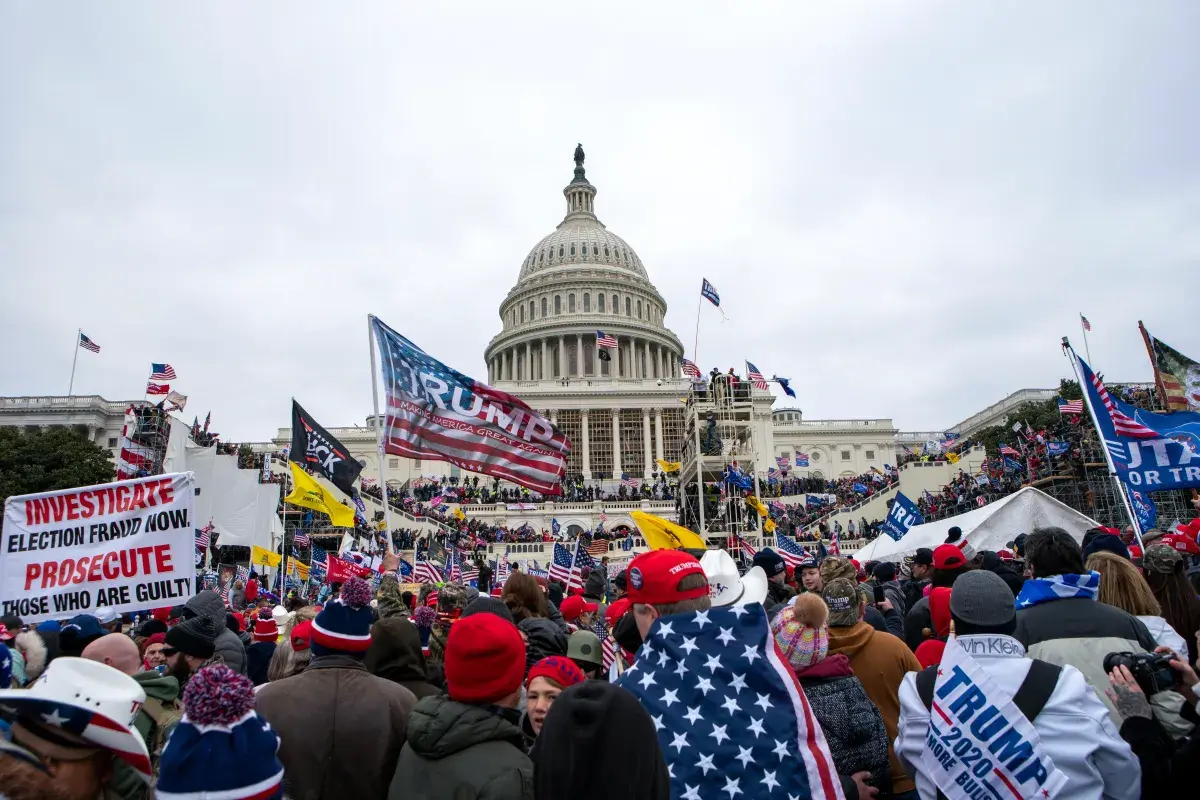Copyright Newsweek

The Justice Department has quietly filed a revised sentencing memorandum in the case of Taylor Taranto, a Washington state man convicted of weapons and threat-related offenses after being arrested near former President Barack Obama’s home, removing earlier references to both President Donald Trump and the January 6, 2021, attack on the U.S. Capitol. Newsweek contacted the DOJ for comment via email outside of normal office hours on Thursday. Why It Matters The Justice Department’s quiet removal of references to Donald Trump and the January 6 attack from a sentencing memo for a man convicted of threat and weapons charges has raised questions about how the department navigates politically sensitive cases. The revisions—made just hours after two prosecutors who authored the original filing were placed on administrative leave—have fueled scrutiny over whether the DOJ is exercising routine caution or bending under political pressure. At issue is not just one defendant’s case, but the department’s broader challenge of maintaining transparency and public confidence while handling matters that intersect with the president and the Capitol riot. What To Know Revisions To The Sentencing Memo The updated document, filed October 29 in the U.S. District Court for the District of Columbia, omits paragraphs from a prior version submitted a day earlier that had noted Trump’s social media post disclosing the Obamas’ address and Taranto’s subsequent online reposting of it. The earlier version also described Taranto as part of the “mob of rioters” who breached the Capitol on January 6, 2021, language that no longer appears in the final filing. The change comes amid scrutiny over the Justice Department’s handling of politically sensitive cases. Two prosecutors, Assistant U.S. Attorneys Carlos Valdivia and Samuel White, were placed on administrative leave after submitting the initial filing that contained the references to Trump and the January 6 riot, according to reporting by Politico published October 29. The Justice Department has not commented on the reason for the prosecutors' administrative leaves. A new version of the memo was later filed by senior officials in the U.S. Attorney’s Office for the District of Columbia, including the criminal division chief. That version retains the same sentencing recommendation—27 months in prison—but removes language linking Taranto’s conduct to Trump or the Capitol attack. Background on Taranto’s Conduct In both versions, prosecutors describe Taranto’s June 2023 actions in detail. According to the memorandum, Taranto “falsely claimed that he would cause a car bomb to drive into the National Institute of Standards and Technology” before driving the following day through Washington’s Kalorama neighborhood, where the Obamas reside, “causing a substantial disruption to the residents and regional law enforcement.” Agents later found two firearms and “hundreds of rounds of ammunition” in his vehicle. The earlier filing linked Taranto’s decision to travel to the area directly to Trump’s post on Truth Social, which “published on a social media platform the purported address of former President Barack Obama.” It stated that Taranto “re-posted the address on the same platform and thereafter started livestreaming from his van on his YouTube channel” while claiming to be “searching for tunnels” near the Obama residence. Those details were among the portions removed from the updated document filed the following evening. Taranto’s case stems from a series of incidents in June 2023, including livestreamed threats against federal facilities and elected officials. A pre-trial detention memo from July 2023 stated that he had “indicated that he intended to blow up his vehicle at NIST,” and later “re-posted” Obama’s address before approaching the former president’s home and attempting to evade Secret Service agents. He was later charged with multiple weapons and threat-related offenses. In the revised sentencing memo, prosecutors continued to argue that Taranto’s conduct reflected “a broader campaign of intimidation against the federal government and public officials” and recommended the maximum within the applicable guidelines range. The memorandum concludes that “a 27-month sentence reflects the gravity of Taranto’s conduct, his lack of remorse, and the need to deter him and others from engaging in similar threatening conduct.” What People Are Saying U.S. Attorney Jeanine Pirro, who heads the D.C. office, said in a written statement: “While we don’t comment on personnel decisions, we want to make very clear that we take violence and threats of violence against law enforcement, current or former government officials extremely seriously. We have and will continue to vigorously pursue justice against those who commit or threaten violence without regard to the political party of the offender or the target,” The Washington Post reported. President Donald Trump, referring to January 6 defendants, as reported by the Associated Press: “These are people who actually love our country.” Trump, via a Truth Social post March 11, 2024: “My first acts as your next President will be to Close the Border, DRILL, BABY, DRILL, and Free January 6 Hostages being wrongfully imprisoned!” What Happens Next The Justice Department is expected to proceed with Taylor Taranto’s sentencing on Friday before Judge Carl Nichols, with prosecutors still seeking a 27-month prison term despite revisions to their memo. Internally, DOJ officials are likely conducting a personnel and policy review following the administrative leave of two prosecutors who authored the original filing, while outside the department, lawmakers—particularly House Republicans—may scrutinize whether the deletions of references to Donald Trump and January 6 were politically motivated. The case is unlikely to alter Taranto’s punishment but may prompt renewed debate over how the Justice Department balances factual transparency with political sensitivity in high-profile prosecutions.



